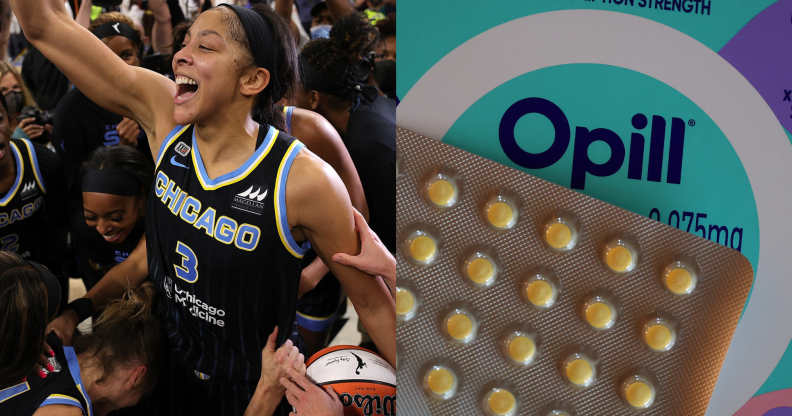WNBA has a sponsorship with a birth control brand. (Getty)
During a time when the US continues to repeal reproductive rights across various states, the Women’s National Basketball Association is standing up for bodily autonomy by partnering with birth control brand Opill.
On 9 April, the WNBA announced its multi-year partnership with the Perrigo Company plc brand, which produces the first-ever daily birth control pill available without a prescription in the US.
“Opill is changing the game in reproductive health, just like the WNBA’s game-changing role in sports and pop culture,” said Leila Bahbah, Perrigo U.S. women’s health brand lead via a press release. “Building upon our shared commitment to foster equitable access and to increase health education, the goal of this partnership is to prioritize dialogue and resources in support of women’s reproductive health.”
Basketball fans will see the partnership creating “touch points” across the US to promote access and education on reproductive health, according to POPSUGAR. This started at 16 April’s WNBA Draft – where 36 new players were drafted into the league – in which Opill is an associate sponsor and had activations at the event.
The outlet also reported that Opill and the WNBA will be embarking on a college campus tour to further provide educational programs on contraception.
As governments continue to fail women and those with uteruses post-Roe v. Wade, advocates standing up for reproductive rights are spilling into popular culture, including sports and entertainment.
In March this year, Olivia Rodrigo made emergency contraception available for fans at her Missouri tour, where abortion has a total ban with very limited exceptions.
The singer invited the Right by You organisation to hand out emergency birth control, condoms and abortion information for free to fans at her GUTS World Tour.
However, her team reportedly stopped emergency contraception from being distributed at her tour just days later. According to sources who spoke to Variety, Rodrigo’s “team” was concerned about the media spotlight on the gesture.
Reproductive health groups were disappointed by the sudden change of heart, arguing that the distribution of contraceptives is “completely legal in all 50 states”.
